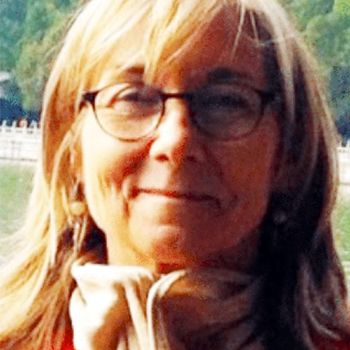As part of the larger goal of building a unified, intersectoral community of practice among French as a second language (FSL) educators, Professors Muriel Péguret and Dominique Scheffel-Dunand are building a multilingual hub that includes a repository of Open Educational Resources (OER), such as textbooks, articles and videos.
OER are free teaching and learning resources that typically use a Creative Commons license that allows users to retain, revise, remix, reuse and redistribute content. This is also known as the 5Rs of OER. Muriel Péguret and Dominique Scheffel-Dunand received funding from the Ontario Ministry of Colleges and Universities to create this online repository and hub, and it is currently in its second iteration.
The pair are striving to ensure that “the project and repository become THE reference for OER in FSL,” said Péguret, coordinator of language programs and academic coordinator of the Glendon BEd program. “We plan to have resources in English and in Indigenous languages, in addition to French, so it can be used by all learners who are engaged in FSL. We also want to aggregate FSL resources from other repositories so people don’t need to search multiple sites.”
They have engaged the services of another colleague, Mirela Cherciov, sessional assistant professor in linguistics and language studies at Glendon, to develop OER useful to the FSL community for continuing education and professional development purposes.

The project is called Camerise, which is the French-Canadian name for the Haskap berry, a native nutritious fruit from the blue honeysuckle that grows in northern climates. The name has symbolism: the superfood characteristics of the berry represents knowledge and effervescence; its tendency to grow in clusters symbolizes community; it grows close to the ground, reminiscent of the bottom-up process of OER creation; and it can be transformed into many derivatives.
“These are resources developed by the FSL community for the FSL community, including teachers, administrators and parents – many stakeholders,” said Scheffel-Dunand, associate professor of French studies in the Faculty of Liberal Arts & Professional Studies (LA&PS).
“You can constantly iterate and rejuvenate knowledge,” said Scheffel-Dunand. For example, Le Littéraire dans le quotidien (The Literary in the Everyday) is an open textbook and represents a new pedagogical approach to reading and writing at college and university lower levels and is applicable to all languages. This OER, conceptualized by Joanna Gay Luks at Cornell University, is currently being adapted by FSL educators in the Grand Erie District School Board and the Brant Haldimand Norfolk Catholic District School Board to develop foundations in understanding Indigenous ways of living and being in FSL programs from elementary to secondary levels in both school boards.
Both project leads note that multilingual OER repositories are already common in both Norway and Finland; Canada is working to catch up.
“OER encourage people not to start from scratch when creating teaching materials,” noted Péguret. “It fits with our complex, changing world. It is good pedagogy to adapt materials to your audience and it also gives teachers the flexibility of being in control of their own resources.”
Although anyone may use an OER, such as a textbook, podcast, or video, and adapt it for their own needs, the licensing requires them to give credit to the original author. This ensures that the original author receives attribution in the remixing process.
By using Camerise, FSL practitioners will be able to:
- search for a resource;
- retrieve and compare similar resources;
- group resources on their personal dashboard;
- share resources with peers;
- comment, review and engage in discussion;
- link external resources and contextualize them with new metadata and modify them based on the OER’s Creative Commons license; or
- deposit OER that you have authored.
There are hurdles to overcome in encouraging FSL practitioners to create resources for Camerise, said Scheffel-Dunand, who notes that people must overcome their uncertainty about transforming, rather than creating resources. In situations where there are many authors originating a paper or a work, they will need to negotiate the type of license applied to the OER. In addition, every aspect of the resource – text, video, etc. – must be verified as an OER, which requires the checking and recording of each external resource’s copyright status.
“It requires a change of culture,” said Péguret. “We want people at all levels to create, share and adapt OER, and we hope that bachelor of education programs will train students to do so, allowing the culture to change naturally over time.”
Péguret and Scheffel-Dunand also plan to connect with Indigenous colleagues to ensure that they can embed Indigenous ways of knowing into the FSL curriculum and into the repository. “We want to include them in the process,” Scheffel-Dunand said. “Until we live those dialogues, we can’t predict which knowledge will lend itself to translation, but the dialogue is open.” The current iteration of the repository is now online and the creators are eager for feedback about the resources and functionalities that colleagues would like to see. Colleagues are encouraged to visit the Camerise website and submit feedback via the webform.
Originally published in YFile.
